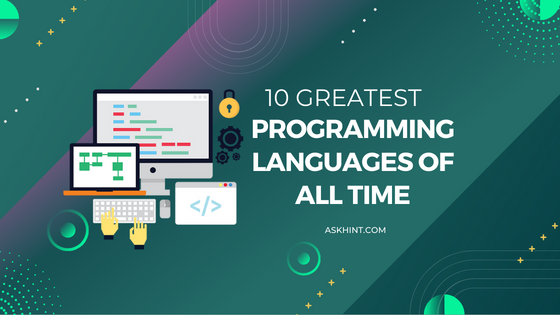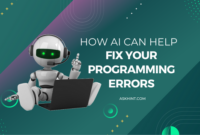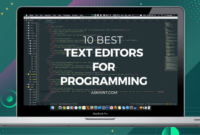As technology advances, so too do the programming languages that developers use to create applications and websites. While some of the most popular languages are relatively new, others have been around for decades and remain integral parts of the development process. In this blog post, we will take a look at 10 of the greatest programming languages of all time. From Fortran to Java and everything in between, these are some of the most influential, powerful, and versatile languages that have shaped the way computing works today. Read on to learn more about these amazing codes!
C++
C++ is a powerful object-oriented programming language that enables developers to create sophisticated software systems. C++ was developed by Bjarne Stroustrup while working on his PhD thesis at Bell Labs in the early 1980s.
Java
Java is a versatile and powerful programming language that enables developers to create robust, high-performance applications. Java is the foundation for many popular frameworks and libraries, including Spring, Hibernate, and Apache Struts.
Java is used by millions of developers worldwide to build a wide variety of applications, from simple desktop programs to complex web-based systems. Java is also a popular choice for developing Android apps.
If you’re just getting started with programming, Java is an excellent language to learn. It’s relatively easy to pick up, and there’s a huge amount of resources available to help you learn. Once you’ve mastered the basics, you can start exploring the more advanced features of the language.
Python
Python is a versatile language that you can use on the backend, frontend, or full stack of a web application. Django, a Python web framework, is used by Instagram and Pinterest. Python is also used in scientific computing, artificial intelligence, and academic research.
Visual Basic
Visual Basic is a high-level, third-generation event-driven programming language and integrated development environment (IDE) from Microsoft for its COM programming model first released in 1991. Visual Basic was derived from BASIC and enables the rapid application development (RAD) of graphical user interface (GUI) applications, access to databases using Data Access Objects, Remote Data Objects, or ActiveX Data Objects, and creation of ActiveX controls and objects. Programs written in Visual Basic can also use the Windows API, which requires external function declarations.
C#
C# is a versatile language that can be used for a wide range of applications. It is a powerful language that is easy to learn, and it has a wide variety of libraries and tools available. C# is a great choice for beginners and experienced programmers alike.
JavaScript
JavaScript is a versatile scripting language that enables developers to create dynamic, interactive web applications. It is widely used in web browsers and server-side environments such as Node.js. JavaScript is an interpreted language, which means that it can be executed without compiling.
JavaScript was created in 1995 by Brendan Eich while working for Netscape Communications Corporation. It was originally designed to add interactivity to web pages. JavaScript is a prototype-based programming language with first-class functions, meaning that functions can be assigned to variables and passed as arguments to other functions.
JavaScript has a number of features that make it unique among programming languages. One of these is its support for object-oriented programming. In JavaScript, objects are created by using the keyword new followed by the constructor function for the object type you want to create (such as Array or Date). Objects can also be created from scratch using the Object() constructor function or by using object literals (which are comma-separated lists of name/value pairs enclosed in curly braces).
Another unique feature of JavaScript is its support for event handling. This enables developers to write code that will execute in response to events such as user input (e.g., mouse clicks or key presses). Event handling is a key part of creating interactive web applications.
Finally, JavaScript has a rich set of built-in libraries that provide additional functionality not provided by the core language. These libraries are known as host objects and include
PHP
PHP is a great programming language for a number of reasons. First, it is easy to learn for beginners and has a wide range of functions for more experienced programmers. Second, PHP is free to download and use, making it an affordable option for businesses and individual users alike. Finally, PHP is regularly updated with new features and security enhancements, making it a good choice for long-term projects.
SQL
SQL is a great programming language for a number of reasons. First, it is very versatile and can be used in a number of different ways. Second, it is relatively easy to learn and use. Finally, SQL is an extremely powerful language that can be used to create complex database applications.
Ruby
Ruby is a versatile programming language that can be used for anything from web development to software engineering. Ruby is known for its ease of use and readability, making it a great choice for beginners. Ruby also has a thriving community with a wealth of resources, making it a great choice for experienced developers as well.
Objective-C
Objective-C is a powerful programming language that enables developers to create sophisticated software applications. It was originally developed in the early 1980s and has been used to develop some of the most popular apps on the App Store, such as Instagram and Snapchat.
Despite its popularity, Objective-C is not without its challenges. It is a complex language with a steep learning curve, and it can be difficult to find experienced Objective-C developers. Nevertheless, it remains an important language for developing high-quality iOS and macOS apps.



